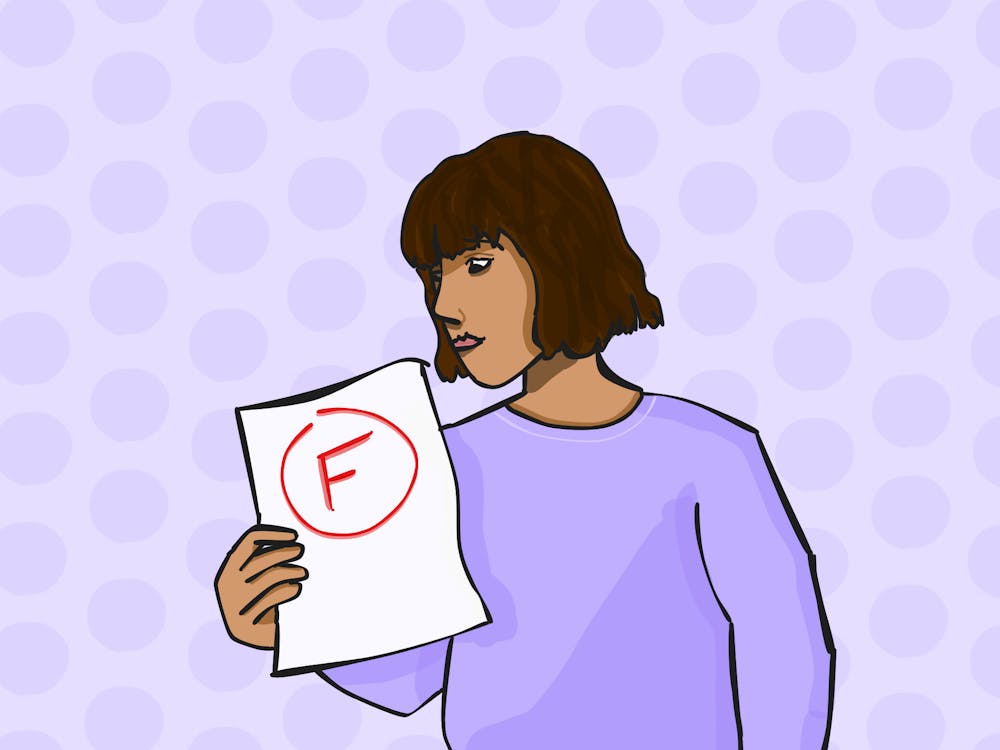When my grandma told me that she had ordered me a surprise gift from Amazon, I played the guessing game for several days. Was it a book? No, she knows I borrow books from the library. Was it knitting needles?
No, she knows I only am motivated to knit when I visit her in the snowy, always freezing, state of Wisconsin. Was it a board game? No, she knows that I already own all of the best board games. And then I was out of ideas.
Luckily, its arrival spared me any more fruitless guesses. My grandma had gotten me my very own GPS. She had been concerned about whether I would like it, but I assured her I loved it. Even I couldn't have thought of a better present for myself. My roommates eyed my GPS enviously. None of them had one; not even my parents had one.
If my parents tried to make me read a map again, I could pretend to listen and then rely on technology to plan my route. My Rand-McNallys were relegated to the trunk of the car, while my GPS occupied the front window. Not only did it mark the first day I got a package that was not a textbook, but it was also the first day that I would no longer lose my way. Or so I thought.
The GPS worked like a charm in Virginia. It planned my routes, avoiding tolls and HOV lanes, predicted my arrival time and gave me clear instructions such as "Turn right here" or "Continue on the freeway." The first time it talked to me, I actually said, "OK," out loud and then felt somewhat embarrassed at having conversed with an electronic device. I even could change the GPS' accent or language, settling on the British English basso-profundo, and set the volume to increase with car speed.
I always used to get lost trying to navigate to new places. I would be that kid who had to stop and call the parents for directions. I began to wonder, what's the point of having a car if I couldn't get anywhere by myself? But now that I had a license coupled with a GPS, I could get anywhere, riding solo. Never did my GPS include a U-turn in the directions, as Google Maps had done, nor did it try to take me on roads closed because of construction. I went from late to on-time and from frustrated with detours to content with my GPS's recalculated route.
So when I took a short road trip with high school friends, of course I couldn't leave without my trusty GPS. My GPS easily navigated us from Alexandria, Va. to Somerset, Pa., making sure to politely ask us if we wanted to avoid tolls before calculating a route through the Pennsylvania Turnpike. It was only when we were trying to navigate from Somerset to Mill Run, Pa. that I realized my GPS had a shortcoming.
Let me first tell you that Pennsylvania, or at least the part we were visiting, is a very rural state. For many hours of the trip, the scenic route was the only route. We passed farms complete with cows and horses, bales of hay and barns. So when my GPS told me to "Turn left" off of a paved country road onto a gravel road, I didn't think much of it, except maybe that we were going from a small road to a slightly smaller road. And the slightly smaller road was called a highway, for goodness' sake.
The gravel turned into dirt, the two lanes turned into barely one and the calm me turned into anxious me. Just when I thought the path couldn't get any worse, the dirt gave way to large rocks and protruding sticks. It was definitely time to turn around. The problem was that such a maneuver was impossible. I couldn't even "off-road" it, since the land on each side was sloping sharply upward, and I was caught in the middle, which was essentially a ditch.
I knew one thing that my GPS seemed not to know; this was no highway. One mile and several curses later, we emerged back onto a paved road. We saw tractors and pick-up trucks in people's driveways and only then realized exactly what kind of traffic this road was meant for.
That day, the day of the bumpiest ride on the world's smallest highway, I lost trust in my GPS. I felt betrayed. My GPS used to be my most reliable travel companion, and now it had taken me on a road which jostled me, agitated me and tried to puncture holes in my tires. If it had taken me down a farm road in Pennsylvania, there was no telling where it would take me next: down a waterfall? Up a ravine?
As we arrived at our destination, my fury wore off, and I began to think. It wasn't my GPS' fault, really. It had just tried to take us on the shortest route possible, and it probably had succeeded. As much as I hated to admit it, it was actually partly my fault. I blindly had followed the command of my GPS instead of using my judgment before turning left.
Then I had a realization. Before, my GPS and I had not been true travel companions. It had been the leader, and I had been the follower. True travel companions would make decisions equally, which is exactly what we do now. My GPS suggests a route, and I decide whether to take it. We sometimes even negotiate; my GPS suggests a turn, I don't take the turn, my GPS recalculates a turn, and I take it. True travel companions also have real names. Mine is Sheila, and I changed hers from TomTom to Sophie. Sophie and I are now the truest travel companions who ever roamed the roads.
Sheila's column runs biweekly Fridays. She can be reached at s.bushman@cavalierdaily.com.






